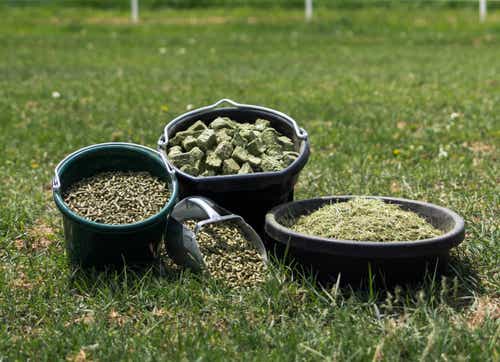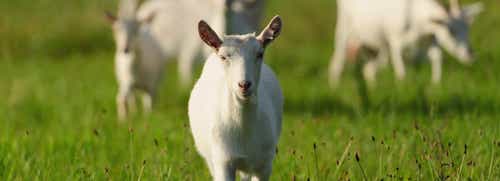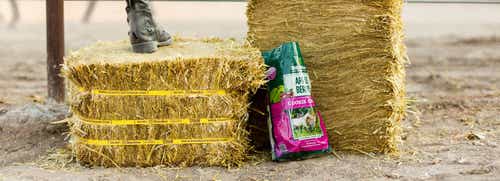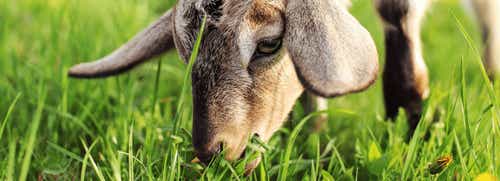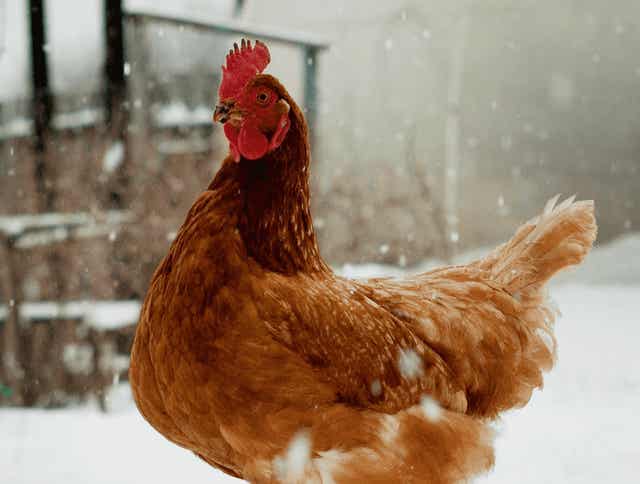
4 Tips for Raising Chickens in the Winter
Winter’s damp, cold weather and freezing temperatures can pose potential challenges to keeping your backyard chickens happy and healthy. Below are 4 tips on raising chickens in the winter, to support your flock’s health and well-being.
1. Prevent frostbite
Chickens are most prone to frostbite on their wattles, feet, and combs.
To help prevent frostbite, protect the chickens’ feet by removing all snow in outdoor runs. Within the coop, provide an elevated roosting area for all chickens so they can roost off the floor. Recommended minimum roost space is 6-8 inches per chicken with a roost diameter of 1 ½ to 3 inches.
2. Maintain adequate ventilation
Proper coop ventilation is critical to keeping chickens healthy, especially during cold and humid conditions.
Draft-free air movement supports fresh air flow to bring oxygen in and move out stale air containing carbon dioxide, excess moisture, and ammonia.
In addition to adequate ventilation, a vapor barrier and insulation are necessary to prevent moisture accumulation on walls and ceilings.
During cold temperatures, humidity builds up in a coop with suboptimal ventilation, putting the chickens at risk of frostbite. Ammonia buildup in litter can also result from poor ventilation, predisposing chickens to respiratory diseases.
3. Allow optimal space for feeders and waterers
Place waterers and feeders with adequate spacing so all birds can eat and drink freely. If feeders are not adequately spaced, birds lower in the pecking order may not be allowed to eat. Allow at least 3 inches of feeder space per bird.
For nipple watering systems, place the water nipple’s tip slightly above the bird’s eye level. Placing the nipple so the bird reaches up to drink will help to prevent excess wet spots. One water nipple is suggested per 6-8 birds. For waterers with lips, place the top lip at the height of the bird’s back which will help prevent waste and keep the water clean.
If possible, locate the waterers in the outside run to help decrease coop’s humidity level.
Provide round-the-clock free access to feed and water to keep birds warm and hydrated during cold weather.
4. Provide ample coop bedding and litter management
Providing ample coop bedding and litter management are key to maintaining the flock’s health and well-being in winter’s cold, damp, and blustery weather.
Winter coop prep starts with removing all soiled litter and replacing it with a generous amount of new moisture-free litter. The bedding provides the birds with needed warmth and insulation.
It’s recommended to do daily moisture level checks as deep litter can significantly increase coop humidity. Monitor humidity and temperature with a digital thermometer/hygrometer.
Litter options include sand, straw, wood shavings, shredded paper, soft hay, and products like Standlee’s Flock Fresh® provide an insulation layer to help keep the flock warm and dry.
Flock Fresh is comprised of zeolite granules, premium chopped alfalfa, and premium chopped straw. The majority of the mix is chopped straw infused with zeolite granules. The alfalfa provides an added benefit in promoting flocks to frequently peck and flip the litter. This natural feeding behavior supports a healthy and comforting coop environment for the birds.
The Chicken Chick’s Sweep Coop® may be applied to the to the Flock Fresh to keep it refreshed.
Made of zeolite, Sweet Coop is a natural mineral composed of volcanic ash and alkaline water, formed under extended pressure. It removes odors instead of masking them, trapping the ammonia before it vaporizes and works by soaking up moisture to prevent frostbite.
Sweet Coop® and Flock Fresh® products work to create a litter base that naturally reduces harmful ammonia fumes and smell. The pairing promotes digestive health while keeping the coop and roosting area dry, comfortable, and virtually scent-free. An added sustainability benefit is they make an excellent chemical-free compost and slow-release nitrogen/potassium fertilizer to use in your gardens and flower beds.
Preventing frostbite, maintaining adequate ventilation, allowing appropriate space for feeders and waterers, and providing ample coop bedding and litter management will help your backyard chickens thrive during winter’s cold, wet, and windy conditions.
References:
- https://the-chicken-chick.com/
- https://the-chicken-chick.com/naturally-sweeter-coops-healthier/
- https://the-chicken-chick.com/frostbit-in-backyard-chickens-causes/
- https://extension.psu.edu/small-scale-poultry-housing
- https://ohioline.osu.edu/factsheet/anr-66




